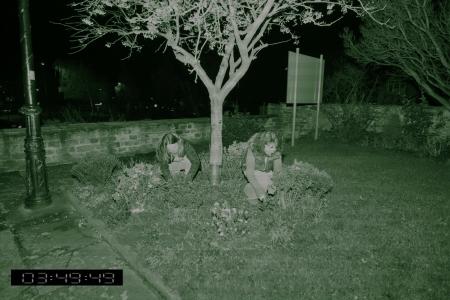Not a massive fan of Plan B's music. But I think some things he says here are good.
8.4.12
A Crude Inquiry
Recently I took part in the Oxford Human Rights Film Festival by watching the award winning documentary Crude. It got me thinking about many things: indigenous peoples rights, the Northern Americanisation of issues, the strength of conviction and most prominently, the power of inquiry.
In Crude we see a group of Indigenous and colonial Ecuadorian people persecuting Texaco for pollution and destruction of the environment; explicitly the area in which the people live. It is a circus of passing on responsibility, vivid corruption and media games all to try and seek some kind of renumeration or compensation, and all at the cost of many years and many more dollar bills.
Now, I am aware of the importance of law. Studying Human Rights through an interdisciplinary lens has underlined the significant requirement of an international legal system with functioning international law, ratified treaties, an overarching monitoring body, jurisprudence and, most significantly, the gravity of protection and restitution. Having mechanisms through which to challenge states, individuals and corporations is essential to human rights. Towards both living life safely and in creating a culture that can help stop future violations.
During this film I had a moment of clarity. I considered what Foucault would say about these good people struggling against the evil corporations. There is a cycle in indigenous communities under threat: of needing to play the big international game, of proving indigeneity, topped by the imposed demand to utilize the dominant powers' tools in the fight.
I imagine Foucault would look at this use of state apparatus and suggest that the method of Inquiry as a tool of the dominant power was still gripping as strongly and obnoxiously as ever. In Truth and Juridicial Forms Foucault analyses the development of inquiry from Greek society to the Western legal system as we now know it. Foucault explains how inquiry has become a way of exercising power, authenticating truth and perpetuating this way of seeing things.
The adoption of inquiry in society is seen by Foucault as a 'political transformation' - and a rather distinctly Western one at that. Rather than being an outcome of the development of rational thought, inquiry became a tool for the dominant power to reorganise judicial practices to be more than between two individuals, and to involve a third party: the state. Now, when a wrong is committed, it not only is a wrong against an individual, but also against the state. The state has managed to appropriate the entire judicial system.
This method of inquiry is still used today. Those with the greatest power and knowledge are those that conduct inquiry, thus, perpetuating a discourse that is in favour of the dominant ideology and the state. Here, the state is making the indigenous community play it's game. It is providing the only legitimate method of inquiry or way of gaining the 'Truth' of a situation. As Foucault argues that “we cannot exercise power except through the production of truth”.
The dominant power (the Western world) is flexing it's methods of 'truth discovery' as the only legitimate way of providing answers, forcing the indigenous peoples to become part of the system that oppresses them.
The fog of neo-colonialism lingered long in the background of this documentary, and as an afterthought I had to quietly reassure myself that 'indigenous' is a Western term; it was the colonisers who were so keen to differentiate between 'them' and 'us'. And as I left the cinema I wondered if we will ever see a world in which indigenous peoples can present their own truth, and not be overshadowed by the protocol of the system.
7.4.12
covert trowels
A couple of weeks ago my good pal gt and I took part in some guerilla gardening.
And what can I say.
It was a lavender scented gem.
It took place on a mild March evening full of smiles and manure and mead and butterless cookies with strangers, exchanging stories and trowels whilst dragging dead shrubs about the cycle paths. It was one of the best evenings I have had in a long time. Helping out in a covert operation with people living in the community to plant little seedlings that had a whole future ahead of them, whilst keeping a look out for the po-po and sneaking sips of cloudy wiltshire cider is just the way I want to spend my Friday nights.
If you want to hear more about our evening, visit the guerilla gardening site here (notice the shout out to the welsh mead bearing lovely couple - didn't want to correct on facts after such a nice endorsement...)
And if you want to start your own... here are some helpful tips.
The only advice I can offer is that you bring a change of gloves and shoes (and possibly trousers) if you don't want to end up smelling like horse shit for the rest of the evening in the pub.
(Learnt from first hand experience.)
Subscribe to:
Posts (Atom)
